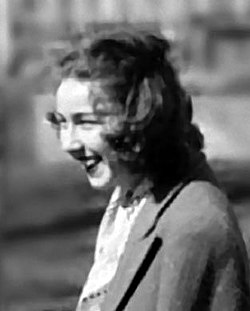Flannery O'Connor Quote
I have heard people say that the short story was one of the most difficult literary forms, and I've always tried to decide why people feel this way about what seems to me to be one of the most natural and fundamental ways of human expression. After all, you begin to hear and tell stories when you're a child, and there doesn't seem to be anything very complicated about it. I suspect that most of you have been telling stories all your lives, and yet here you sit - come to find out how to do it.Then last week, after I had written down some of these serene thoughts to use here today, my calm was shattered when I was sent seven of your manuscripts to read.After this experience, I found myself ready to admit, if not that the short story is one of the most difficult literary forms, at least that it is more difficult for some than for others.
I have heard people say that the short story was one of the most difficult literary forms, and I've always tried to decide why people feel this way about what seems to me to be one of the most natural and fundamental ways of human expression. After all, you begin to hear and tell stories when you're a child, and there doesn't seem to be anything very complicated about it. I suspect that most of you have been telling stories all your lives, and yet here you sit - come to find out how to do it.Then last week, after I had written down some of these serene thoughts to use here today, my calm was shattered when I was sent seven of your manuscripts to read.After this experience, I found myself ready to admit, if not that the short story is one of the most difficult literary forms, at least that it is more difficult for some than for others.
Related Quotes
About Flannery O'Connor
O'Connor was a Southern writer who often wrote in a sardonic Southern Gothic style. She relied heavily on regional settings and grotesque characters, often in violent situations. In her writing, an unsentimental acceptance or rejection of the limitations, imperfections or differences of these characters (whether attributed to disability, race, crime, religion or sanity) typically underpins the drama.
O'Connor's writing often reflects her Catholic faith, and frequently examines questions of morality and ethics. Her posthumously compiled Complete Stories won the 1972 U.S. National Book Award for Fiction and has been the subject of enduring praise.
